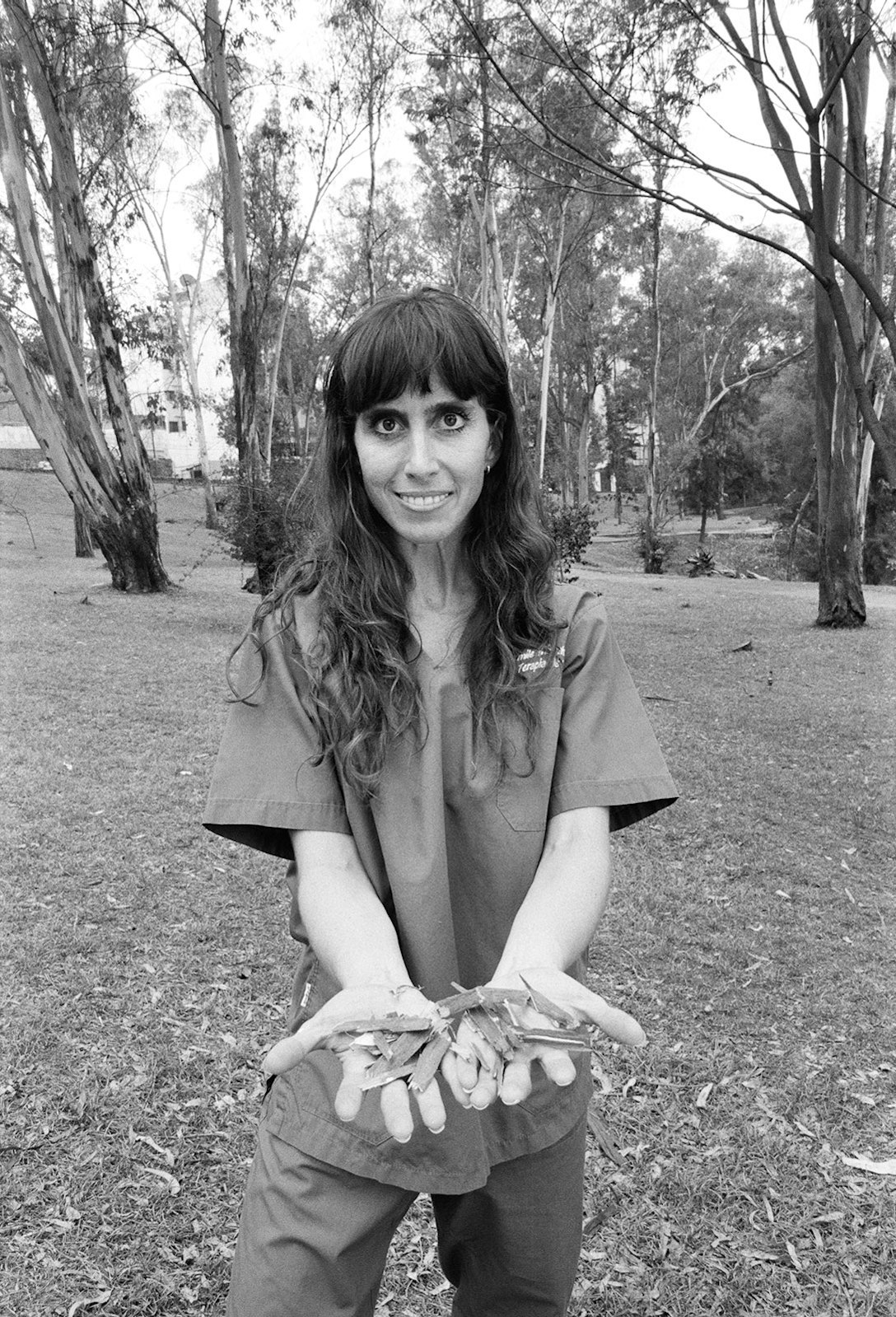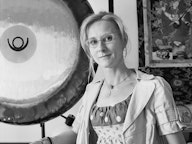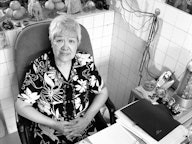
Yemile Misrahi Efrato
Mexico City, Mexico
HOW CLOSE CAN WE GET TO GOD?
My earliest memory of having faith was when I was 9 or 10. Laying down on the grass, I turned and saw a blue, blue sky. I was in my home’s garden. I saw a small cloud and thought, ‘I want to be that cloud. I want to be so close to God like that cloud.’ And I remember, I thought, ‘God is here.’ I didn’t feel His presence because for me God is energy. God is an energy that contains you; where you return.
There was a time I had to rely on my understanding of God when I was performing reiki during a surgery. The doctor finished, turned to me, and said, ‘Give him energy so that I don’t lose the kidney. Give him energy.’
I had not washed; I was not antiseptic. All the doctors went out; the patient was open. I said, ‘OK God, please help me.’ I didn’t touch the patient but I was sweating. When I finished, I said, ‘I’m finished, thank you.’
The doctors came back, and I was looking at my hand. On my palm was an aleph [the first letter of the Hebrew alphabet]. I was so surprised. I have spots on my hand but had never seen this. An aleph. I said, ‘Wow. This is a gift, a real gift.’ And since then, when I say all the names of God, I also say ‘Aleph,’ because the aleph was the gift, not for me, but for these people. It was so amazing. In all the surgeries now, the aleph is with me. So I know really that God is with me, really. I can show you pictures. I was taking pictures of my hand today just to show you, because now my hand is clean. I want to show you.
Every name of God has got a different kind of energy. I know most of them and I use them with each patient. As I don’t know how to do all of them, I always ask God to send what the patient needs. I ask God to be my heart and my hands. I put my hands to God. I always ask Him. And I think I’m always speaking with God. I think now I have a direct channel. I don’t need a church, I don’t need a synagogue, I don’t need a special moment. I’m so grateful to God. For everything that happens to me I say, ‘Thank you God, really thank you.’ I’m always giving thanks for everything and speaking with God most of my day. What I’m doing now is to say the Berachah for the Netilat Yadayim [blessing for washing of the hands] every time I wake up because I think it’s going to help me, or help the people to receive better energy.
I’m not religious. I’m very spiritual.
Daniel’s Reflection
I met Yemile Misrahi Efrato in Mexico City. She is a reiki healer who uses her Jewish understanding of Kabbalah (Jewish mysticism) in her work, especially providing reiki in hospital surgeries. I love Yemile’s story from her childhood—when she wanted to be a cloud so that she could be closer to God. Yemile asks God to be her heart and her hands.
Her story raises for me several questions: How close can we be to God? Are we ever separate from God? If we are never separate from God, what is the point of prayer and healing work?
This whole area of reflection is often referred to as dual versus non-dual understanding of God and the world. The dual school of thought is that God and soul are separate from the body and mind. In this case, God is external to us, whether that God is a personal God or a non-personal energy. The non-dual thought is that humans are one with God (however you understand God) and each other. Here are three perspectives on dual versus non-dual thought:
Judaism: Jay Michaelson beautifully describes the Jewish Kabbalistic understanding of non-dualism like this: “In the Zohar and elsewhere, the deepest secret is that, despite appearances, all things, and all of us, are like ripples on a single pond, motes of a single sunbeam, the letters of a single word. The true reality of our existence is One, Ein Sof, infinite, and thus the sense of separate self that we all have—the notion that ‘you’ and ‘I’ are individuals with souls separate from the rest of the universe— is not ultimately true. The self is a phenomenon, an illusion, a mirage.”
Christianity: One of my favorite new teachers, Franciscan priest Richard Rohr, describes the non- dual this way: “Dualistic or divided people, however, live in a split and fragmented world. They cannot accept that God objectively dwells within them or others.” And, in his book, The Universal Christ: How a Forgotten Reality Can Change Everything We See, Hope For, and Believe, Rohr writes, “I doubt if you can see the image of God in your fellow humans if you cannot first see it in rudimentary form in stones, in plants and flowers, in strange little animals, in bread and wine, and most especially cannot honor this objective divine image in yourself.”
Islam: In the Quran 50:16 it states:
“And indeed We have created man, and We know whatever thoughts his inner self develops, and We are closer to him than [his] jugular vein.”
I subscribe to the non-dual understanding of God. To believe in a God-energy or universal benevolent force, I must see God in all things and in all people... and God cannot be separate from anything in God’s world.
I love how Yemile says she asks God to be in her heart and hands, that she has a direct channel, and does not need a church, synagogue, or special moment to connect to God’s healing power. I believe this is true for everyone because we are not ever separate from the Divine Source. What is the purpose of prayer or energy work if we are never separate from God? My own understanding is that prayer and energy work provide an intention and a focusing power for the person being prayed for or receiving the energy work so blockages to receiving Divine healing that are of our own making are broken open.
I am grateful that Yemile Misrahi Efrato came to understand this as her path—a path that shows each of us that we are always close to the God of our understanding.
Permissions and References
-
Michaelson, Jay. “Vedanta and Kabbalah: Nonduality East and West.”
Embodied Philosophy. October 31, 2018.
Permission to quote text from this article was given to the author by Jay Michaelson on July 5, 2021.
-
Rohr, Richard, OFM. 2019. The Universal Christ: How a Forgotten Reality Can Change
Everything We See, Hope For, and Believe. SPCK.
Explore the portraits by theme
- happiness
- grief
- addiction
- sexuality
- sobriety
- transgender
- alcoholism
- suicide
- homelessness
- death
- aggression
- cancer
- health
- discipline
- abortion
- homosexuality
- recovery
- connection
- enlightenment
- indigenous
- depression
- meditation
- therapy
- anger
- forgiveness
- Doubt
- interfaith
- worship
- salvation
- healing
- luminaries

